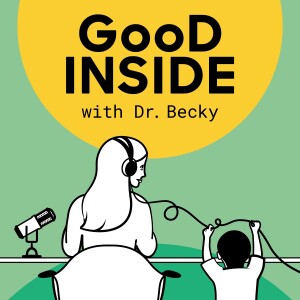You're listening to the Happy Homebirth Podcast, Episode 104
Today's guest: Dr Rachel Reed is a midwife, academic, author, and international speaker who focuses on childbirth physiology, midwifery practice, and women's rights (and rites). She has provided midwifery care for many women and has attended births in a wide range of settings and circumstances. Rachel is the author of the award-winning blog MidwifeThinking and the co-host of The Midwives' Cauldron podcast. She has published widely in journals and magazines, and her first book Why Induction Matters is a popular resource for women and care providers. Her most recent book Reclaiming Childbirth as a Rite of Passage: weaving ancient wisdom with modern knowledge will be published early 2021. Further information about Rachel and her work is available at www.rachel-reed.website. and….she’s just delightful.
I find myself getting sucked into her blog archives for hours at a time, and for today’s episode I decided to ask her about several topics that she covers quite wonderfully there. I know you’re going to deeply enjoy this episode. With that, let’s jump in!
Show Notes:
Big Babies
Most women having homebirth in Australia have “big” babies, and they’re not scary.
In hospital, however, it can be a different story. If a doctor diagnoses a mother with a “big baby” on ultrasound, it can begin to cause stress and fear for her.
Dr. Reed mentions that the research does not separate healthy, normal big babies from those whose mothers have gestational diabetes. These babies tend to have bigger shoulders and can have more difficulty coming out (though most of them come out just fine, too).
“Big babies don’t scare me, but what people do about big babies does scare me.”
Women who are told they have a big baby: C sections, tearing, poorer outcomes are more likely— so it’s the outside causing the problem.
A care provider’s fear of the big baby can cause many of the interventions
Gestational Diabetes as a label— fairly nonsensical
If there are abnormally high blood glucose levels circulating, that does impact the baby and potentially the birth. However, the blood glucose levels being used are not evidence-based
In Australia, around 17% of women are now labeled as a gestational diabetic.
When Dr. Reed was training, we only tested those who had risk factors.
The issues with challenge tests: it’s an abnormal test— many pregnant women are not drinking sugary drinks, so the tests results can be very off.
VBAC- Mountain or Molehill?
Is this as dangerous as the medical community seems to happen?
Research related to this is mixed with those who are having inductions and those who are not— when we remove those who are having inductions, we see the already small number of issues become all the smaller.
Statistically a
More Episodes
Ep 47: Switching Care Providers Later in Pregnancy
 2019-10-21
2019-10-21
 3.1k
3.1k
Ep 46: Should You Have a Hospital Birth With Your First Baby?
 2019-10-14
2019-10-14
 3.9k
3.9k
Ep 45: This is The Birth I Wanted
 2019-10-07
2019-10-07
 4.0k
4.0k
Ep 44: Jessica's Snowflake Births
 2019-09-30
2019-09-30
 3.7k
3.7k
Ep 43: Fertile Minds, Fertile Bodies
 2019-09-23
2019-09-23
 2.7k
2.7k
Ep 42: Elizabeth Achieves a Mindful Birth
 2019-09-16
2019-09-16
 4.7k
4.7k
Ep 41: Giving Birth to Twins... at Home
 2019-09-09
2019-09-09
 4.4k
4.4k
Ep 40: Shayla Has an Empowered Freebirth
 2019-09-01
2019-09-01
 3.4k
3.4k
Ep 39: The Heart of Postpartum Together
 2019-08-26
2019-08-26
 3.0k
3.0k
Ep 38: A Look at Irish Prenatal Care and Homebirth with Emer
 2019-08-19
2019-08-19
 3.7k
3.7k
Ep 37: Alexa Chooses Homebirth With Her First Baby
 2019-08-12
2019-08-12
 5.6k
5.6k
Ep 36: The Transformative Nature of Birth
 2019-08-05
2019-08-05
 3.7k
3.7k
Ep 35: When Pregnancy Becomes High Risk...Twice
 2019-07-29
2019-07-29
 3.1k
3.1k
Ep 34: GlowbodyPT's Guide to a Fit Pregnancy and Post-Pregnancy
 2019-07-22
2019-07-22
 2.9k
2.9k
Ep 33: Jasmin Struggles with Stalled Labor
 2019-07-15
2019-07-15
 3.6k
3.6k
Ep 32: A Cultural Look at Postpartum Healing With Adilah
 2019-07-08
2019-07-08
 3.5k
3.5k
Ep 31: All Kinds of Motherhood: Sydney’s Journey as a Bio Mom, Homebirth Mother, and Surrogate
 2019-07-01
2019-07-01
 4.8k
4.8k
Ep 30: Katelyn's Peaceful, Undisturbed Birth
 2019-06-24
2019-06-24
 7.0k
7.0k
Ep 29: Rachael Births at the Birth Center... Before it was Cool!
 2019-06-17
2019-06-17
 3.2k
3.2k
Ep 28: MaternityWise's Anne Croudace Shares Her Birth Stories
 2019-06-10
2019-06-10
 3.6k
3.6k
Create your
podcast in
minutes
- Full-featured podcast site
- Unlimited storage and bandwidth
- Comprehensive podcast stats
- Distribute to Apple Podcasts, Spotify, and more
- Make money with your podcast
It is Free
You may also like

Dr. Laura Call of the Day


Focus on the Family with Jim Daly


Calm Parenting Podcast


The Story of Mankind


The Count of Monte Cristo


Good Inside with Dr. Becky


Raising Parents with Emily Oster


- Privacy Policy
- Cookie Policy
- Terms of Use
- Consent Preferences
- Copyright © 2015-2024 Podbean.com



 iOS
iOS Android
Android